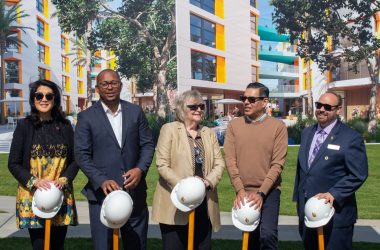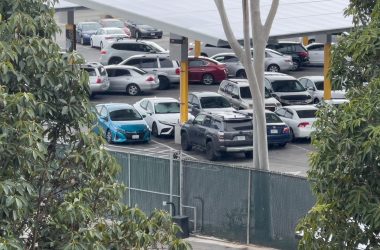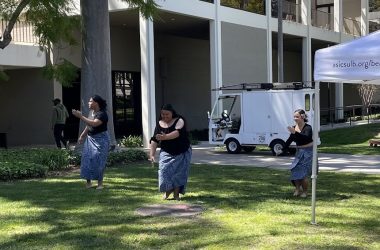Biologist Eric Wieschaus, a co-recipient of the 1995 Nobel Prize in the physiology category, spoke to about 100 students, faculty and staff at the University Student Union Ballrooms on Monday.
Wieschaus’ speech, titled “Embryo Development: Does knowing the Science Help with the Social and Ethical Issues?,” was co-sponsored by the College of Natural Sciences and Mathematics (CNSM) Student Council and Dean’s Office, Cal State Long Beach Office of the President, and CSULB Associated Students Inc.
According to the Nobel Prize website, Wieschaus was awarded along with geneticist Edward Lewis and biologist Christiane Nüsslein-Volhard for their “discoveries concerning the genetic control of early embryotic development.”
The lab Wieschaus worked in was the only one studying embryonic development in the fruit fly Drosophila, according to Elizabeth Eldon, an associate professor in biological sciences. Eldon said Weischaus has “revolutionalized” developmental genetics and biology.
Christopher Frost, instructional support technician at CSULB, said Wieschaus studies “how we get from a fertilized egg to a complete organism” as part of his research. Frost thought it was interesting to listen to someone speak about discoveries concerning our development.
Elaine Maliyil, vice president of the CNSM student council, said she felt the lecture was important to attend.
“How many people can say they met a Nobel prize winner?,” Maliyil said.
Wieschaus said speaking to the public is fun and a scientist’s obligation.
“It’s always fun to talk about science,” Wieschaus said. “In terms of what’s interesting about science and what people should know, scientists do two things: we discover things and tell people about them.”
Weischaus said the hardest part of being a scientist is making his work useful for the public.
“The challenge we face as scientists is to present that understanding in a way the public can use,” Wieschaus said. “What I’ve given you today is my best experimental understanding of how things work.”
Embryonic development is something that should fascinate everyone because we’ve all gone through it, Wieschaus said.
“I think it fascinates all of us, at one point in our existence we were a single cell and developed into a complex organism,” he said.
Philip Thompson, a sophomore chemical engineering major, said he attends weekly lectures. He likes to keep up on researchers.
“It’s very cool to hear people that get it explain the body of their work,” Thompson said. “This guy has a Ph.D. and a Nobel Prize.”
Wieschaus said he felt surprised when he received the Nobel Prize.
“[My family] figured a man who lives in the lab as much as I do must get a Nobel Prize,” he said jokingly.
Angelica Paras, CNSM student council president, and Eldon introduced Wieschaus as the 32nd speaker in the Nobel Laureate Lecture series. Paras said these lectures aim to “inspire our students to pursue scholarly work.”
Some students, such as Frost, agree that the Nobel Laureate lectures allow others to learn something new and be inspired to do something great.
Frost said, “It’s really about new perspectives, new information and new inspiration for me.”
Disclaimer: The Daily 49er is not responsible for comments made on www.daily49er.wpengine.com. Persons commenting are solely responsible for comments made on this Web site. The Daily 49er strongly advises individuals to not abuse their First Amendment rights, and to avoid language suggestive of hate speech.



